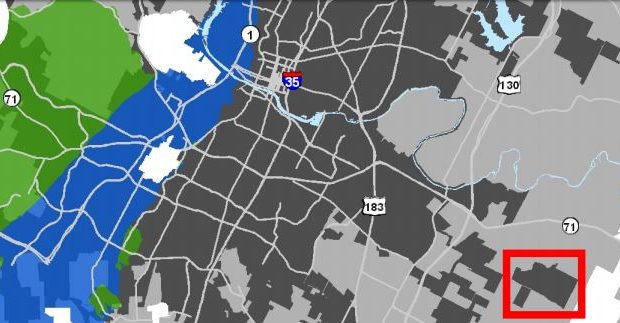CM Garza has second thoughts about Sun Chase PUD
Thursday, June 16, 2016 by
Jack Craver After voting to support it just a month ago, City Council Member Delia Garza said on Wednesday that she’s not sure she can continue to back a massive Planned Unit Development east of Austin in Del Valle.
The Sun Chase PUD likely does not provide the community with benefits that the city should demand of PUDs, Garza suggested.
“My understanding of PUDs is they’re supposed to be superior agreements that provide some sort of benefit, and it’s hard for me to see those benefits,” she said.
The original proposal that was recommended by the Planning Commission in January would have required the developer, Qualico CR LP, to offer 10 percent of the homes it constructs at a price considered affordable. But it did not specify that the homes be reserved for those of a particular income, and it did not ensure that the residences would remain within a certain price range in the long term.
“Anybody could buy them, and after that first-time sale, there was no keeping them affordable,” Richard Suttle, an agent for Qualico, told the Austin Monitor.
The only way the city could guarantee permanent affordability, he said, was if it owned the homes or the land. Therefore, after further negotiations, Qualico agreed to donate 3 percent of its residential lots to the Austin Housing Finance Corporation.
At a meeting last month, during which Council approved the PUD on second reading, Garza said she had hoped for more affordable units but was happy that the city had been able to coax the developer to reserve 3 percent of the residential units for families with incomes below 80 percent of the area median, up from the 2 percent originally offered.
On Wednesday, however, Garza suggested that 3 percent wasn’t enough, or at least not enough to make up for the other shortcomings she perceived in the project.
Among her concerns are the development’s proximity to a floodplain, the possibility that the existing infrastructure in Del Valle can’t support such a large development and, finally, that the roads that will be constructed in concert with the project will not be up to city standards in the highly likely event that the city annexes the area in the next 25 years.
The roads in the development will be maintained by Travis County and be built in accordance with the code established jointly between the city and county for areas that fall within Austin’s extraterritorial jurisdiction, which includes any unincorporated part of the county within 5 miles of city limits.
The county’s road standards are aligned with vehicle-centric suburban planning, or the standards Austin operated under during the 1980s and 1990s, explained city engineer Andrew Linseisen. While the city is working to bring the county road standards closer to Austin’s, which are oriented toward multimodal transportation, he assured Garza that the roads that would become part of the city upon annexation would not be too small to accommodate big-time traffic.
“Our real challenge is they might be too big,” he said.
Council Member Greg Casar said that he, too, wanted to get as much affordable housing out of new developments as possible, but argued that it was difficult to put in place standards that could be applied universally. The specifics of each case are so different, he said.
“It’s hard for me to know whether 3 percent on this deal is bad or good compared to 3 percent somewhere else,” he explained.
If Council were to reject the PUD, a large portion of the proposed project would still go forward. The 2,472 single-family residences have already been approved, said Suttle. Qualico sought the PUD in order to add an additional 2,400 multifamily units and 65 acres of commercial space to the development.
Without the PUD, however, the city would lose out on the promise of the affordable housing units as well as a number of environmental and open space commitments Qualico has made. The developer has pledged to restore a nearby floodplain and to provide hundreds of acres of parkland, among other things.
Despite Garza’s stated objections, it remains likely that the PUD will be approved on its third and final reading, scheduled for Thursday’s Council meeting.
Council Member Don Zimmerman did not voice any objections to the project, per se, but said that he planned to argue during the Thursday meeting that the city staffers who come before Council to recommend a PUD should be treated as lobbyists, just like the private agents working on behalf of the developer.
“How is it that city staff are making the same recommendations as the paid lobbyist?” asked Zimmerman, whose comments elicited looks of bemusement and bewilderment from his colleagues.
“I would like our professional staff to make their recommendations on every case because they’re our staff,” responded Mayor Steve Adler.
“That’s their job,” interjected Council Member Leslie Pool.
You're a community leader
And we’re honored you look to us for serious, in-depth news. You know a strong community needs local and dedicated watchdog reporting. We’re here for you and that won’t change. Now will you take the powerful next step and support our nonprofit news organization?



